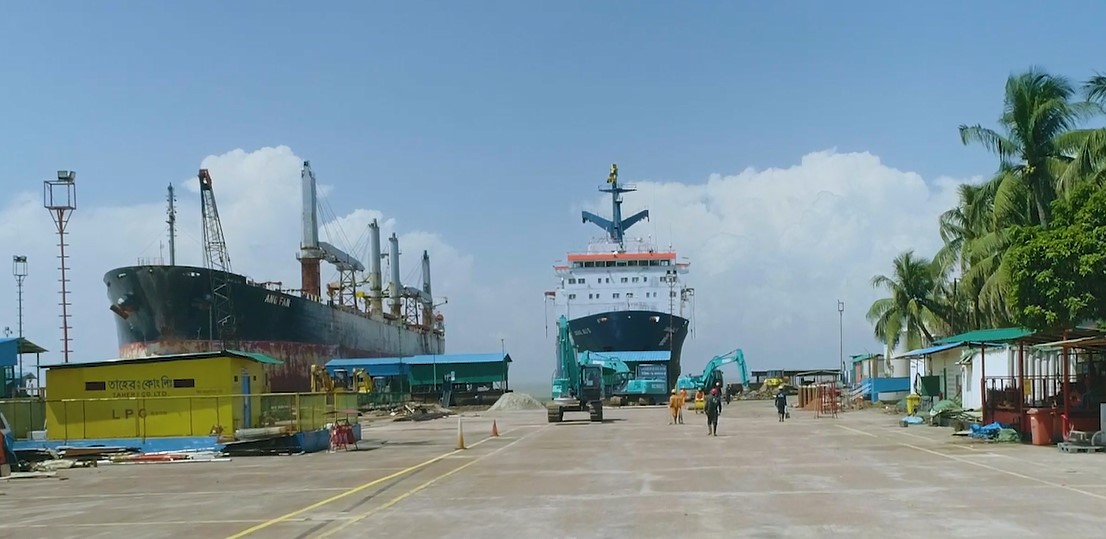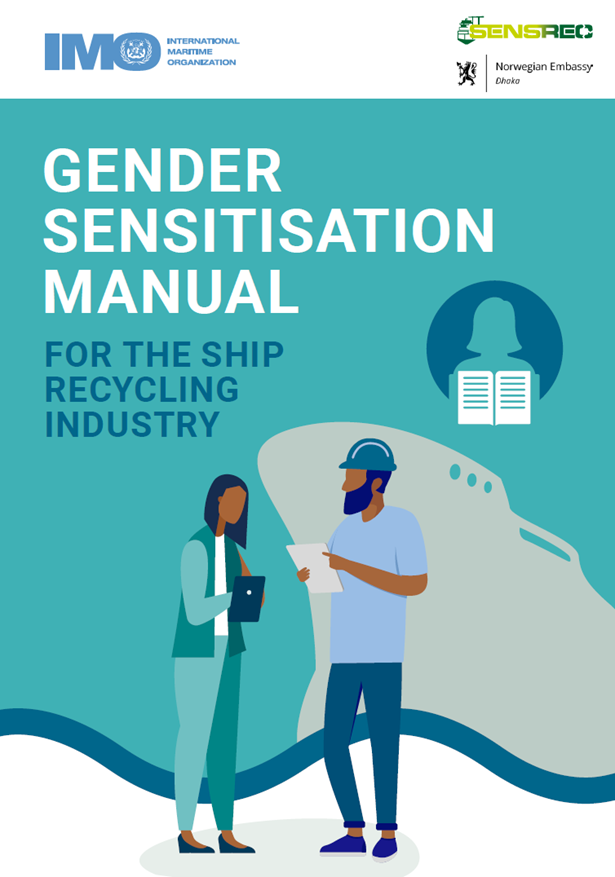SENSREC Programme
Safe and Environmentally Sound Recycling of Ships

The SENSREC Programme
SENSREC is a collaboration between the Government of Norway and IMO to support developing countries for the implementation of the Hong Kong International Convention for the Safe and Environmentally Sound Recycling of Ships. The project is a comprehensive and integrated
approach that focuses on policy alignment, design and establishment of
institutional mechanisms and governance systems, and at the same time develops
the capacities of the stakeholders in the ship recycling sector by promoting
sustainable social and environmental practices. The overall objective of the SENSREC Project is to enhance the capacity
of developing countries to promote a just
transition and put in place sound and effective measures that improve the
standards of health, safety and environmental compliance at ship recycling
yards, as required by the Hong Kong Convention, as well as the capacity for
environmentally sound waste management of hazardous waste and other materials
that are generated from the process of ship breaking.
While it is usually adjusted to the specific needs of each country, work under the SENSREC Project is typically divided into four categories:
- Legal and institutional refinement;
- Capacity building for health, safety and environmental compliance;
- Planning for management of hazardous materials and wastes; and
- Support to industry upgrade.
Ship recycling and the Hong Kong Convention
Ship recycling makes a positive contribution to the global conservation of energy and resources and, in the process, employs a large, if predominantly unskilled, workforce. Properly handled, ship recycling is, without question, a "green" industry. It results in almost all materials and equipment used in the manufacture of a ship being re-used in other forms, an outcome which is both environmentally sound and energy efficient. For instance, using recycled steel requires just one third of the energy used in the manufacture of steel from raw materials.
However, while the principle of ship recycling is sound, the working practices and environmental standards in ship recycling facilities vary from yard to yard, and even from one country to another. Ensuring the safe and environmentally sound recycling of ships remains a global concern. While ultimate responsibility for conditions in the yards has to lie with the countries in which they are situated, other stakeholders must be encouraged to contribute towards minimising potential problems in the yards.
The Hong Kong Convention provides a "cradle to grave" solution to regulate ship recycling throughout the whole life of the ship. The Convention will enter into force on 26 June 2025. The video below outlines the need for universal ship recycling regulations and how IMO is helping its Member States improve the environmental and safety standards in their ship recycling industries in line with the requirements of the Hong Kong Convention. You can read more about the Hong Kong Convention here.
SENSREC in Bangladesh
Launched in 2015, the SENSREC project in Bangladesh has produced a number of economic and environmental studies on ship recycling, developed and deployed training materials for the ship recycling workers and is contributing to the development of infrastructure including facilities for treatment, storage and disposing of hazardous wastes generated from recycling operations. SENSREC Bangladesh is currently going through its 3rd phase.
SENSREC in Pakistan
Launched in September 2023, the overall objective of the SENSREC-DW (SENSREC-Decent Work) project is to enhance the capacity of the Government of Pakistan and its ship recycling industry to promote a just transition and put in place sound and effective measures that improve the standards of health, safety and environmental compliance at ship recycling yards, as required by the Hong Kong Convention, as well as the capacity for environmentally sound waste management of the hazardous and other materials that are generated from the process of ship breaking. From a labour perspective, the project will advocate for the promotion of decent working conditions including labour and social protection of workers. SENSREC-DW is a direct collaboration between IMO and ILO. Both UN agencies work hand in hand to implement the project with a view to tackle issues in a holistic manner.
SENSREC in other countries
With the entry into force of the Hong Kong Convention in June 2025, IMO offers support from its SENSREC Project to developing countries with the objective of preparing all stakeholders for the implementation of the Convention. For more information, contact sensrec@imo.org
Gender mainstreaming and ship recycling
The SENSREC project has published a Gender Sensitisation Manual for the Ship Recycling Industry. This publication is aimed at industry managers and women with an interest in developing a professional career in this sector. It contains general recommendations, do's and don'ts and insights into the types of roles available in ship recycling. The Manual can be downloaded from the link below.
IMO SENSREC - Gender Sensitisation Manual for the Ship Recycling Industry.pdf
